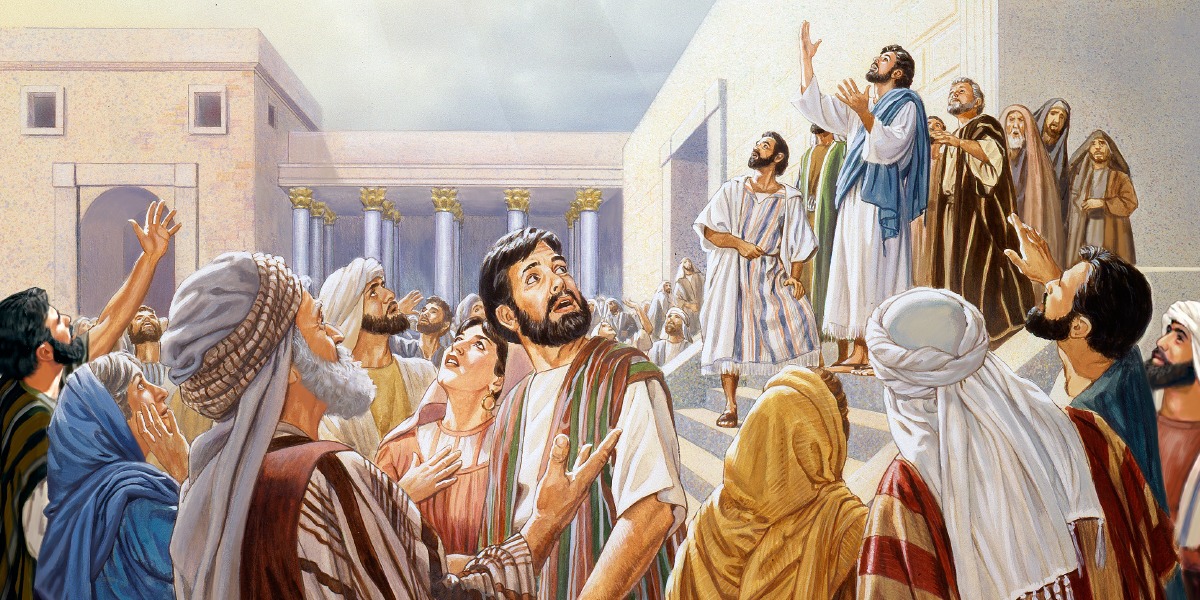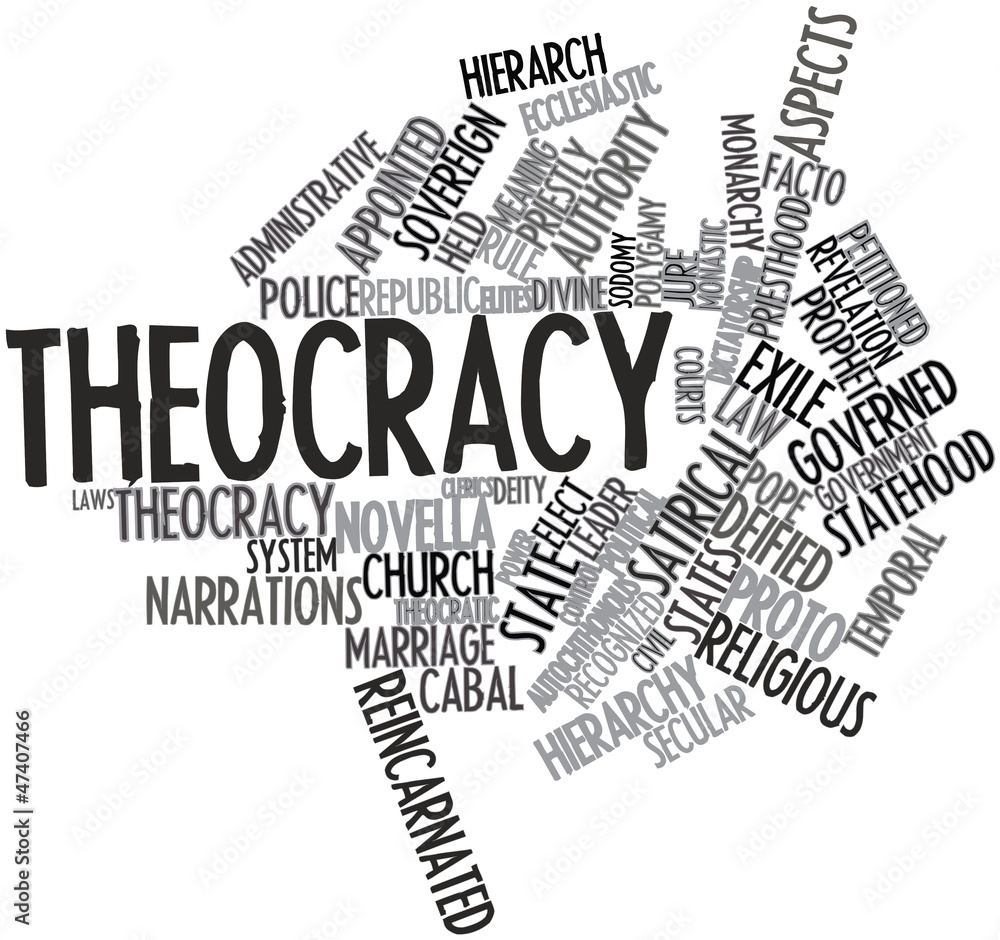Mudaspoke.com_ Theocratic government system is a political system in which the form of government and political practice upholds divine values.
Even though this government system is no longer popular in the modern era, there are still several places and countries that adopt a theocratic government system.
Divine principles inherent in every aspect of social and cultural life often make people have uniform life practices.
Now! I wonder what a theocratic government system is. If yes! it’s right for you to read the following young talk article, read it to the end.
Read Also : Democratic Government System, Definition and Characteristics
Understanding Theocracy Government System

Etymologically the word theocracy comes from the Greek word θεοκρατία . θεος means God and κρατειν means rule or power.
Whereas in terminology theocracy is an absolute identity attached to the state system, in which the state leader is also a religious leader or in other words theocracy is government by a representative of God.
In carrying out national and state activities, the form of theocratic government adheres to divine principles as a practice of social life.
Society in this government system upholds religious values and relies on and is guided by religious norms and rules.
In other words, the highest sovereignty in this system of government is in the hands of God and those who claim to be messengers of God.
In terms of the authority and legitimacy of this government system, the constitution and beliefs are made the rule of law of the state, either directly or indirectly.
A professor of church history named James H Smylie explained theocracy is a form of government in which power and authority come from God.
Therefore, this system of government is dominant with various rules related to God, even in making policies and decisions of this system based on God’s rules.
Read Also : Plutocracy Government System, Definition and Characteristics
The function of government structures and administrators is none other than to implement and uphold God’s law over society.
While the writer Dewey D. Wallace explained that theocratic system of government is a type of government which believes that God has the sovereignty to rule.
A Brief History of the Theocracy System of Government
At first the theocratic government appeared inseparable from the development of the Catholic religion which was mobilized by church leaders in the Middle Ages (V – XV).
The phenomenon of the spread of Christianity/Catholicism resulted in the existence of two powers in one area, namely the state power led by the king and the church power led by the Pope.
During the Roman empire of Augustine, a pope named Gregory I gathered various papal institutions to spread religion and establish a papal dynasty.
Although the process of spreading did not go so smoothly, because it was caused by the resistance carried out by people of pantheism. Pantheism itself is people who have belief in gods and worship the gods.
Read Also : Dictator Government System, Definition, Causes and Characteristics
Gradually the spread of Christianity reaped its rewards by making Christianity the official state religion as well as being able to influence the making of state rules and laws.
It was at this point that the church became one of the most influential institutions not only in terms of religion but also in every aspect of social, economic, political and cultural life.
In the end, various problems slowly emerged when the church and state had different perspectives in solving problems.
This naturally splits society between those who are pro-church and those who are pro-government.
For example, when the king, King Edward II, wanted to remarry, but at that time the church did not allow it, so that made the king, King Edward II, create his own church, named Anglican, to make his intentions clear.
Various Theocracy Government Systems
Theocratic government system is divided into 3 types, among others:
1. Pure Theocracy
Pure theocracy is a system of government whose power is led by prophets, priests and religious experts. In this system, those who lead are considered as representatives of God.
2. Government Theocracy
Theocracy is a government system in which the power is held and controlled by a king whose power he gets from God.
Read Also : Monarchy Government System, Definition, Types and Characteristics
3. General Theocracy
The General Theocracy is a theocratic government system in a general sense, namely a system of government whose power and leadership is based on God.
Features of Theocracy Government System

1. Enforcement of God’s Law
In a theocratic government system, there is no institutional structure that stands as the ruler’s control so that the ruler has full power in the name of God.
Sovereignty and full power through the laws of God and humans are only as subjects who run them without being able to criticize.
2. The Existence of Two Authorities
In a theocratic government system, there are two entities of power, one is the king who leads the state and the other is a figure who represents a religious institution.
3. Abuse of Authority
In a theocratic government system, it is prone to abuse of authority. Apart from not having a control agency, this system can do anything in the name of God.
Even when unscrupulous members of society who do not carry out the rules in accordance with God’s rules will be tortured, persecuted and even in some cases to death.
Read Also : Definition of Government System, Types and Examples
History has recorded that Europe has experienced strife, fights and wars just because people did not follow divine ideology.
4. Single Religious Ideology
A system of government based on God’s rules and laws certainly only believes in the existence of one religious ideology so that people have no choice in religion.
This means that choosing a religion is no longer a freedom as a human right, but choosing a religion is a state coercion on its people.
5. Intervention
In exercising power, leaders who use a theocratic government system tend to intervene in society.
The form of intervention is none other than when policies and decisions have been issued, all citizens are obliged to follow his orders.
There is no democratic narrative that gives citizens space for freedom of association, assembly and giving opinions.
6. Unconditional Loyalty
The logical consequence of the theocratic government system is that citizens have unconditional faith and loyalty because everything is based on God’s rules.
When beliefs are attached, in practice there are no more questions and debates in terms of beliefs. With this belief, in this government system there is no opposition, rebellion and questions about beliefs.
If there is a conflict and it results in a role, the war is a matter of religious belief, not a political problem.
Therefore, it is not surprising that in this system of government a soldier is not afraid to make sacrifices because in principle they are not defending the country but they are defending God.
7. Status Law
In a theocratic system of government, law is static because everything originates from the foundation of God’s rules. Legal knowledge is not based on logic and justice but on the principles of God.
In addition, in this system there is no civil freedom of expression and opinion. After all! if there are people criticizing actually he is not criticizing the government but criticizing God.
That’s all for the explanation of the theocracy government system this time, see you in the next political science commentary. Happy Reading!
Referensi: Kevin Phillips. 2005. American Theocracy

